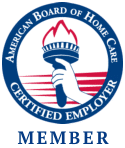Jerry was 76 when he had a stroke. He had been at an elevated risk of stroke for some time because of other health issues, but neither he nor his wife were expecting it. Who does expect a stroke coming? Fortunately, Jerry was able to get medical attention promptly, which helped to minimize the damage the stroke caused. Still, he required ongoing support, assistance, and encouragement for many months. Neither Jerry nor his wife thought about home care assistance services when he was in the hospital.
When Jerry came up for discharge, the doctor came in to talk about things, discuss the future and plans and fitness regimens, and all of the other things he would have to get used to and adjust to in this new life, and he also mentioned home care assistance.
When Jerry was finally discharged, he spent a week at a nursing home before finally returning home to the comfort of his bed. His wife was concerned about all the things that would have to change. She wasn’t certain she would be able to physically help him the way he needed, at least not right away.
The doctor had expectations or hopes that Jerry would recover enough physical strength, balance, and dexterity to do some of the most basic tasks of everyday life on his own, but getting there was going to be an arduous journey.
During the first couple of days, his wife did her best to support him. Physically, though, it was quickly taking a toll on her 75-year-old body. That’s when they called on a local home care agency to provide the assistance Jerry needed moving forward. After this, they realized the many benefits that come with this type of home care assistance.
Benefit #1: Aides can offer the physical assistance an aging spouse may not be able to.
Too often when couples have been together for years, they take their vows seriously and that means a person in their 70s or 80s is trying to help their beloved get out of bed, get into or out of the shower, to get up from the recliner, and other tasks that can be physically exhausting. It can also cause real physical harm to the person helping if they don’t have experience, are not balanced properly, or don’t have the strength to do it.
Professional home care assistance providers are trained in how to help senior clients properly and safely.
Benefit #2: Home care assistance can help with more personal or intimate matters.
This may not be as critical for a spouse helping their loved one, but what about an adult child who’s suddenly thrust into the role of helping mom or dad go to the bathroom or take a shower? With the same gender that might not be as big of a concern, but what if an adult daughter now has to take care of her father? Or an adult son is tasked with helping his aging mother?
That can make one or, more likely, both quite a bit uncomfortable, at least at first. Professional home care assistance can change all that and a home care aide can be the one to assist with these more personal matters.

Benefit #3: Experienced aides often provide encouragement.
It’s not that family or friends can’t, but when you are in the middle of it, it’s difficult to see the forest for the trees. It’s difficult to see the positive when all you see appears to be negative.
Home care assistance comes from those who have been doing this for a while and often provides some valuable insights about what is possible not just now, but into the future. Some of that encouragement can be crucial for aging seniors who don’t see much to be positive about when they are struggling through a difficult recovery process.
If you or an aging loved one are considering Home Care Assistance Services in Irvine CA, please call the caring staff at Canaan Home Care today! 1-844-CANAAN-1 (1-844-226-2261)
Canaan Home Care – A Premier Provider of Senior Home Care in the La Jolla, Del Mar, San Diego, Rancho Santa Fe, Newport Beach, Laguna Beach, Huntington Beach, Irvine, Tustin, and Manhattan Beach areas.
- Reduce Clutter and Reduce Stress This Spring - April 23, 2025
- Sight Issues Your Loved One With Alzheimer’s Disease May Experience - April 15, 2025
- Ways Respite Care Will Benefit Your Senior - April 9, 2025





